|
Welcome to the second edition of the North-West University's newsletter, Research@NWU.
The aim of this newsletter is to showcase research projects, researchers and related events.
|
 |
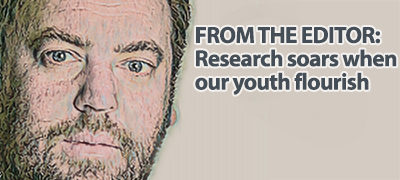 |
|
Public universities in South Africa are facing intense scrutiny amid funding shortfalls, enrolment pressures, and controversial calls for structural reform. There have even been suggestions that several public universities be closed in favour of technical colleges and that private universities is a viable alternative to public universities. This issue has sparked a national debate.
|
In June, we South Africans celebrate Youth Month, but the significance of this commemoration only truly struck me once the term youth no longer applied to yours truly. Ironic, isn't it? Forty-eight years ago, the youth of our country stood up and proclaimed: "No more!" Innovation now flows through the doors they forced open, yet too many prevailing socio-economic pressures and disruptive forces threaten to shut those doors once more. |
|  READ MORE
READ MORE
|
 READ MORE
READ MORE
|
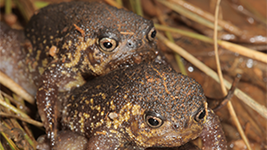 |
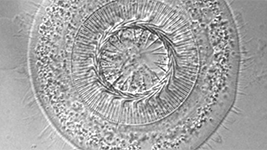 |
 |
New species of rain frog discovered
In the damp, grassy slopes of the KwaZulu-Natal Midlands, an unassuming amphibian has leapt into the scientific spotlight. Named Breviceps batrachophiliorum – Latin for 'frog-loving people' – this newly described species of rain frog is a triumph of taxonomy and a compelling example of the intersection of citizen science and academic rigour.
|
Groundbreaking book explores hidden world
A significant contribution to environmental science was recently made with the release of a new book, Aquatic Parasitology – Ecological and Environmental Concepts and Implications of Marine and Freshwater Parasites, co-edited by Prof Nico Smit from the NWU and Prof Bernd Sures from the University of Duisburg-Essen.
|
A matter of tongues:
SA's frogs and reptiles
Frogs, snakes and lizards rarely take centre stage in the worlds of language policy and biodiversity, but then again, South Africa is no ordinary place. A new study published in the African Journal of Herpetology offers a compelling insight into how indigenous knowledge and scientific taxonomy can coexist to make conservation truly inclusive and effective.
|
|  READ MORE
READ MORE
|
 READ MORE
READ MORE
|
 READ MORE
READ MORE
|
 |
 |
SA's high tech gamble:
AI in the newsroom
The rapid rise of artificial intelligence (AI) has already transformed industries from finance to healthcare, but its impact on journalism is only beginning to be understood. In a recent study titled "AI Adoption in South African Newsrooms: Exploring Journalists' Perceptions", published in the Communicatio journal, Soligah Solomons, a lecturer at the School of Communication Studies, and her co-author Musawenkosi Ndlovu, examine how South African journalists perceive the AI wave crashing into their newsrooms.
|
Reimagining higher education through cross-faculty collaboration
Higher education, that sprawling landscape of lecture halls, research labs and late-night study sessions, is undergoing a quiet but profound transformation. The Covid-19 pandemic shattered the status quo, pushing universities to rethink the way they engage with students and each other. Now, a group of researchers from the NWU – Nombulelo Zenani, Nisa Ayob, Alexander Samuels and Martin Chanza – have taken a closer look at how universities can break down academic silos to improve student engagement and academic success. |
|  READ MORE
READ MORE
|
 READ MORE
READ MORE
|
 |
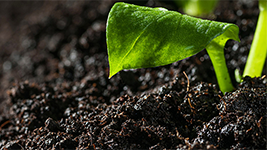 |
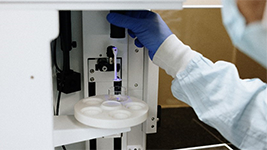 |
How celebrity casting is shaping musical theatre
Musical theatre, a vibrant blend of song, dance and drama, has long been a playground for the audacious and the talented. Star and celebrity have always been a staple for glittering marquees of Broadway to the neon-lit stages of the West End, however this has in recent decades become a contentious issue as celebrity as a concept has undergone tremendous change.
|
The soil sleuths
of the Highveld
Soil – humble, overlooked and often taken for granted – is one of the most vital resources on Earth. Yet, understanding its complex chemistry remains a scientific challenge, particularly in the vast, varied landscapes of South Africa. A recent study by Anru-Louis Kock, Prudence Dimakatso Ramphisa-Nghondzweni and George Van Zijl from the NWU has brought this challenge into sharp focus.
|
Expert launches tissue bioprinting laboratory
Tissue bioprinting and regenerative medicine are critical new frontiers in advancing human health. In partnership with a top Spanish researcher, Prof Daniel Nieto, the NWU has dramatically expanded its bioprinting research and innovation capabilities in its quest to find alternatives to animal testing and enhance personalised medicine. Prof Nieto recently visited the NWU to inaugurate the DNietolab-NWU Biofabrication Research Unit.
|
|  READ MORE
READ MORE
|
 READ MORE
READ MORE
|
 READ MORE
READ MORE
|
 |
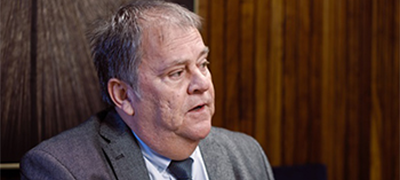 |
Breaking the HIV bottleneck: Why sub-Saharan Africa must lead the way
The global fight against HIV-1 has often been framed as a success story of science, funding and international collaboration. But as the virus evolves, so too must our strategy. A recent commentary in Nature Reviews Microbiology, led by Dr Monray Williams, issues a stark warning: global complacency must end, and sub-Saharan Africa must be placed at the centre of the research agenda, or risk losing control of the HIV-1 epidemic.
|
In the spotlight:
Prof Ian Rothmann
"My greatest hope is that my contributions create ripple effects – opening doors for others, laying foundations for future breakthroughs, and helping shape a more just and resilient world for future generations." These are the words of Prof Ian Rothmann, director of the NWU's Optentia research entity, and newly rated B1 researcher by the National Research Foundation (NRF). |
|  READ MORE
READ MORE
|
 READ MORE
READ MORE
|
 |
|
Researchers in the spotlight
The NWU's researchers are known for their impactful research.
In this edition we highlight the expertise of Prof Amare Abebe, research director at the Centre for Space Research, as well as the team at the newly established Family and Child Forensic Unit.
 READ MORE
READ MORE
|
|
|
|
 Your feedback is important!
Your feedback is important!
